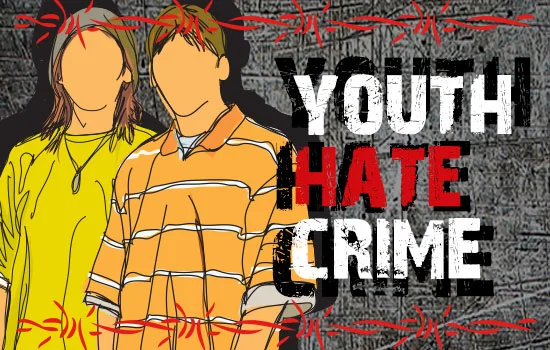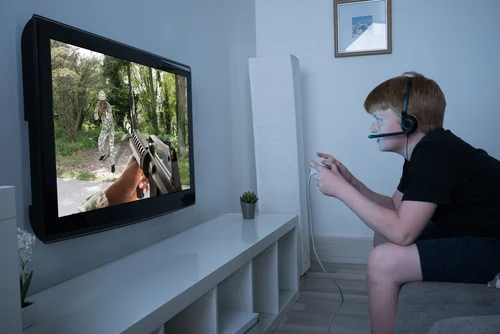+1 845 259 2974 (11 a.m to 7 p.m CST)
Civic Responsibilities of Teens: Walking the Talk!

The phrase “civic responsibilities” often evokes images of formal, adult obligations, voting booths, jury duty, and tax forms. For many teenagers, such concepts feel distant and irrelevant, overshadowed by the immediate pressures of exams, social circles, and the general chaos of adolescence. The digital world, with its endless stream of content and social dynamics, can feel more immediate than the physical community.
However, civic life is not a distant country to be visited only in adulthood. It is the very fabric of daily life, and every teenager is already a citizen within it. This is not about waiting for permission to make a difference but about recognising the power that exists right now to shape the world. It involves moving from passive observation to active participation, from talking about change to actually making it happen.
The journey towards active citizenship begins locally, extends into the digital realm, and ultimately involves finding one’s voice in wider conversations. The following sections explore how teenagers can walk the talk and embrace their role in society.
It Starts on the Doorstep: Community is Everything
The local area, the high street, the park, the bus route to school—is the immediate universe for most teenagers. Its health directly impacts daily wellbeing. Civic responsibility begins with caring for this shared space.
Simple actions can have a significant cumulative impact:
- Respecting Public Spaces: The simple act of taking rubbish home or using a bin is a fundamental gesture of respect. It rejects the notion that someone else is responsible for cleaning up the mess, reinforcing that the community is a shared responsibility.
- Engaging with Local Issues: When a local library faces closure or a youth club loses its funding, a sense of frustration is a natural civic response. That feeling can be channeled into action:
- Signing petitions to demonstrate public support.
- Sharing information online to raise awareness.
- Attending local council meetings to show decision-makers that young people are invested in their community’s future.
- The Power of Volunteering: Often seen as a chore or a line on a university application, volunteering becomes transformative when aligned with a genuine passion. It builds bridges and fosters a sense of belonging.
- Helping at a local animal shelter.
- Coaching a youth sports team.
- Volunteering in a charity shop for a chosen cause.
- Organising a community clean-up day.
These actions transform a person from just another “teenager” into a valued, recognised member of the community’s fabric, creating a powerful sense of connection and purpose.
Also read about: Top 5 Teen Crimes That Are On the Rise
The Digital World: The Modern Town Square
For younger generations, online life is real life, making the digital realm a crucial new civic space. This comes with a modern set of responsibilities where teenagers are often the most knowledgeable citizens.
- Critical Consumption of Information: In an age of misinformation, sharing a post without checking its source can be socially harmful. Civic duty online involves:
- Pausing before sharing content to question its origin and agenda.
- Developing media literacy skills to distinguish fact from fiction.
- Promoting a Positive Digital Environment: Online spaces can become toxic quickly. Responsible citizenship involves:
- Calling out harmful behaviour in group chats or comment sections.
- Reporting genuine hate speech and trolling to platform moderators.
- Using social platforms to amplify positive causes and constructive dialogue.
- Strategic Online Activism: While online petitions can sometimes feel insignificant, they can be powerful when part of a broader strategy. Coupling a digital campaign with a well-written email to a local councillor can transform a simple click into effective advocacy.
Finding a Voice and Using It
The world of formal politics can feel intimidating and disconnected from daily life. Yet, political decisions directly affect everything from college funding and bus fares to the NHS and the climate crisis. While the right to vote is granted at 18, a citizen’s voice is not silent before then.
Several avenues exist for political engagement:
- Getting Informed: Engagement does not require reading dense political manuals. It can involve:
- Following trusted news outlets and journalists on social media.
- Listening to podcasts that explain issues in an accessible way.
- Discussing and debating current events with friends and family.
- Contacting Representatives: Members of Parliament are obligated to respond to their constituents. A thoughtful letter or email from a young person about an issue like climate change or mental health services can be incredibly impactful, reminding officials of their duty to all citizens.
- Peaceful Protest: The history of social change is filled with examples of peaceful protest creating momentum. Joining a organised march for a cause can be an empowering experience that demonstrates collective strength. Safety should always be a priority:
- Attending with friends.
- Ensuring a phone is charged.
- Knowing one’s rights and having a plan.
- School-Level Politics: Student councils and school boards are microcosms of wider political systems. Running for a position and campaigning for tangible changes—like better mental health support or healthier food options—provides invaluable practical experience in negotiation, campaigning, and governance.
The Ripple Effect: Why Actions Matter
Every civic action creates a ripple effect. Volunteering strengthens community networks. Challenging misinformation improves the quality of public discourse. Political engagement fights back against apathy and signals that young people demand a seat at the table.
- On a personal level, civic action is an powerful antidote to feelings of powerlessness. It builds critical life skills:
- Communication and organisation
- Empathy and critical thinking
- Resilience and perseverance
- Engaging with the community allows for encounters with diverse perspectives, offering a form of education unavailable in any classroom.
Also read about: Understanding Why Teens are Attracted to Guns
Navigating the Challenges
The path of civic engagement is not without its obstacles. Apathy from peers, the dismissive comment of being “too young to understand,” and the frustration of failed campaigns are all common experiences.
The key is to persist. Historical progress is rarely the result of one grand action but the cumulative effect of countless small efforts. Finding a supportive group of like-minded individuals is crucial for sharing the load and celebrating the small victories—a saved community centre, a successful event, a positive response from an official. These moments provide the fuel to continue.
Conclusion
Walking the talk is a conscious daily choice. It is the choice of participation over passivity, and hope over cynicism. Citizenship is not a passive status but an active identity built through action.
The younger generation is already demonstrating a remarkable capacity for being informed, passionate, and globally conscious. The problems of the world are seen with startling clarity. The challenge is to channel that clarity into action, to build the future rather than just witness it happening.
























